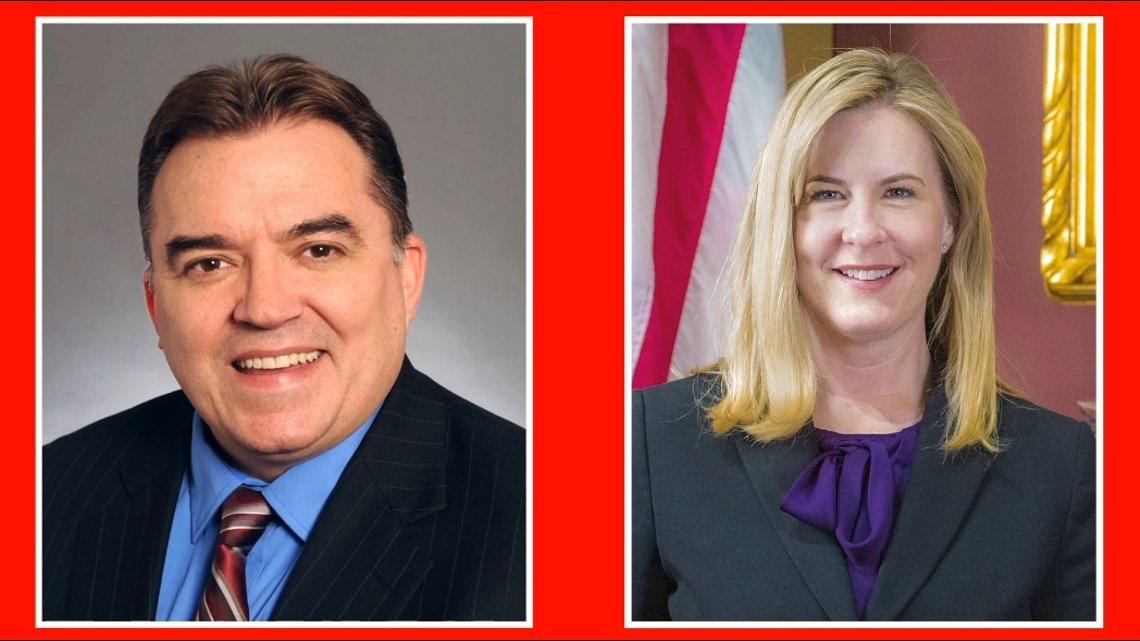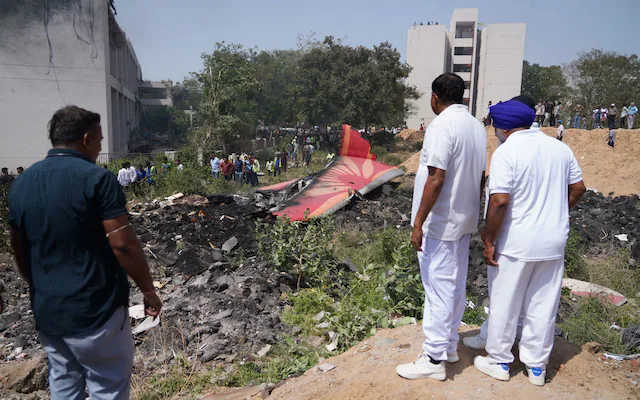In a post on X, Amit Shah said Mallikarjun Kharge’s comments show the “hate and fear” the Congress has for Prime Minister Modi.

Home Minister Amit Shah’s Remarks on Mallikarjun Kharge’s Speech
Context and Background
In the political arena of India, the dynamics between the ruling Bharatiya Janata Party (BJP) and the opposition Congress party have always been intense. With an upcoming election, tensions are particularly high, and speeches from both sides often reflect the growing divide between the two parties. A recent event that captured national attention was the exchange between Union Home Minister Amit Shah and Congress President Mallikarjun Kharge. Kharge, in a recent speech, declared that he would stay alive until Prime Minister Narendra Modi was removed from power, sparking a fierce response from Shah.
Amit Shah, in a post on X (formerly known as Twitter), called Kharge’s speech “distasteful and disgraceful,” signaling the deep-seated rivalry between the BJP and Congress. Shah’s remark did not end there. He went on to emphasize that the Congress party harbored “hate and fear” towards Modi, framing Kharge’s words as part of a broader pattern of animosity. He continued by underlining the Congress party’s “hatred and fear” of Modi, interpreting Kharge’s remarks as a component of a larger hostile trend.
Mallikarjun Kharge‘s Speech and Its Implications
The Congress party’s effort to establish itself as the main opposition force against the BJP is being carried out in Kharge’s address. His audacious pledge to live till Modi is removed is a stunning declaration of his tenacity and political longevity. It also begs concerns about the character of Indian political debate, though. It seems that Kharge’s comment—especially the portion about his personal health—was meant to arouse feelings among voters and members of his party. His remark is a reflection of the Congress party’s greater discontent, since it has been difficult for them to win back national authority in recent elections.
Amit Shah’s Response to Mallikarjun Kharge
Amit Shah’s reaction to Kharge’s speech, labeling it as “distasteful and disgraceful,” was sharp and unequivocal. The terms Shah used suggest that he views Kharge’s remarks as not only politically inappropriate but also personally offensive. By stating that the Congress leader unnecessarily dragged PM Modi into his health matters, Shah framed Kharge’s speech as an attempt to divert attention from real political issues. Shah’s response also aimed to underline a point that has been a recurring theme in BJP’s rhetoric: Congress’s focus on attacking Modi rather than presenting substantive policy alternatives.

The “Hate and Fear” Allegations
Amit Shah made reference to the “hate and fear” Congress has for Prime Minister Modi in his post. This sentence sums up the BJP’s narrative, which holds that the opposition is motivated more by hatred for the Prime Minister than by a forward-looking outlook for India. It is a reflection of the divisiveness in Indian politics, where insulting remarks and derogatory campaigns are the standard. In an attempt to incite the BJP’s supporters, the word “hate and fear” has been intentionally employed to paint the opposition as a group that only wants to remove Modi from office.
Analyzing Kharge‘s Remark on His Health
Kharge’s mention of his health as part of his speech was unusual and sparked a range of reactions. In politics, personal health is often considered a private matter, and bringing it into a public speech can be seen as either a sign of vulnerability or strength. However, by linking his personal health to the political fate of Modi, Kharge attempted to personalize his political stance. This could resonate with certain segments of the electorate, but it also opened the door to criticism, as seen in Shah’s sharp retort.
The Impact on Public Perception
Undoubtedly, Amit Shah’s reaction to Mallikarjun Kharge’s speech shook up the political establishment and changed popular opinion of the Congress and the BJP. Being one of the most powerful BJP leaders, Shah is renowned for making incisive political comments, and this incident was no exception. By characterizing Kharge’s speech as “distasteful and disgraceful,” he painted the Congress as a party open to personal attacks while projecting the BJP as a party that maintains decorum in political debate.
These kinds of conversations can polarize the population. Shah’s remarks can be seen by BJP followers as a forceful defense of their leader, strengthening their allegiance to Modi and the group. However, those who support Congress may view Kharge’s remarks as a daring challenge.to Modi’s unwavering hegemony in Indian politics. Even if it helps unite party bases, this polarization has the potential to further split the electorate along ideological lines.
The History of Personal Attacks in Indian Politics
Political attacks against the person are not new in India. Political leaders from different parties have made speeches over the years that focus more on specific people than on policy. Kharge’s latest remark about his health and Modi’s political prospects resembles earlier instances where personal problems were forced into public discourse.
For instance, politicians have a history of disparaging the families, socioeconomic status, and even physical attributes of their rivals during elections. Even while they aren’t always fruitful, these personal barbs have influenced the atmosphere of Indian elections and have frequently attracted a lot of media interest. This larger tradition of personal politics, in which the emphasis switches from policy discussions to personal rivalry, is what Kharge’s remark and Shah’s response fit into.
Political Strategy Behind Amit Shah’s Reaction
Amit Shah’s quick and scathing response to Kharge’s speech is a well-thought-out political ploy. As an experienced politician, Shah is aware of the value of developing a narrative. By characterizing Kharge’s speech as “distasteful,” he shifted the subject. Shah turned the conversation about decorum and respect in political debate away from Kharge’s brazen challenge to Modi.
This tactic is essential as India prepares for next elections. The BJP is attempting to improve its reputation as a party with moral authority and capable leadership. Shah’s comments reinforce that perception by characterizing the opposition as rude and disorganized. As a result, the BJP is able to draw in hesitant voters who respect decency in public life and broaden its support base.

Media and Public Reactions to the Exchange
Public opinion is greatly influenced by media coverage, just like it is in any high-profile political dispute. Newspapers, social media, and TV news stations have all provided in-depth coverage of Kharge and Shah’s conversation. Political analysts have offered their insights on the potential consequences as mainstream media outlets have analyzed the talks.
The interaction has sparked a lot of discussion on social media sites like X (previously Twitter). Both parties’ supporters have used the forum to express their views, with popular hashtags on the subject. While some have applauded Kharge’s audacity, others have mirrored Shah’s criticism of the speech for invading personal space. It is impossible to overstate the impact of social media on political narratives since it gives politicians a direct platform to the audience and create their own narratives without using the conventional media’s filter.
The Role of Social Media in Modern Political Discourse
Social media platforms have become indispensable in modern political discourse. Politicians now use platforms like X, Facebook, and Instagram not only to share their views but also to respond to opponents in real time. Amit Shah’s post on X criticizing Kharge is a prime example of this shift. In earlier times, such a reaction would have come through a press conference or a formal statement to the media. Today, social media allows politicians to instantly react and influence public sentiment.
This immediacy comes with both advantages and challenges. On the one hand, it allows for quick communication with supporters. On the other hand, it can escalate conflicts as statements are often made in the heat of the moment. For the public, social media acts as a battleground where political ideologies clash, and it amplifies the impact of speeches like Kharge’s and reactions like Shah’s.a theater of political struggle that intensifies the significance of statements like those made by Kharge and responses like those made by Shah.
The Impact of This Incident on Future Elections
Every political action and utterance is closely examined for its possible effect on voter sentiment as elections get near. The conversation between Shah and Kharge is not unique. This episode might help the BJP maintain its reputation as Modi’s party of strong leadership, with Amit Shah serving as his reliable deputy. The BJP may strengthen its narrative that the Congress is more interested in attacking Modi personally than in addressing important concerns by characterizing Kharge’s comments as improper.
Kharge’s remarks is a risk for the Congress. While it shows that the party is not hesitant to take on Modi head-on, it also runs the danger of offending supporters who might think that personal jabs are inappropriate. The effectiveness of this tactic will rely on how voters interpret Kharge’s comments in light of their overall dissatisfaction with Modi’s policies.
Conclusion
The exchange between Amit Shah and Mallikarjun Kharge is emblematic of the deep divide in Indian politics today. Shah’s response, calling Kharge’s speech “distasteful and disgraceful,” underscores the BJP’s strategy to portray the Congress as a party driven by personal attacks and animosity toward Modi. Meanwhile, Kharge’s bold speech reflects the Congress party’s efforts to remain relevant and challenge Modi’s dominance.
As the political landscape in India continues to evolve, such exchanges will play a key role in shaping the narratives that influence voter behavior. The ultimate impact of this incident will be seen in the upcoming elections, where both parties will seek to rally their supporters and convince undecided voters of their vision for India’s future.
FAQs
What did Mallikarjun Kharge say in his speech?
Kharge said that he would stay alive until Prime Minister Modi was removed from power, a statement that drew widespread attention.
Why did Amit Shah call the speech “distasteful”?
Shah labeled the speech “distasteful” due to Kharge’s mention of personal health matters, which Shah felt unnecessarily dragged PM Modi into a personal issue.
What is the political background between BJP and Congress?
The BJP, led by Prime Minister Narendra Modi, has been in power for several years, while Congress, once the dominant party in Indian politics, is now the primary opposition, seeking to regain its former prominence.
How does social media affect political discourse?
Social media platforms like X (formerly Twitter) have transformed political discourse, allowing politicians to communicate directly with the public and react in real time, often shaping narratives before traditional media can.
What are the public reactions to Kharge’s and Shah’s comments?
Public reactions have been polarized. BJP supporters have defended Shah’s criticism of Kharge, while Congress supporters have praised Kharge’s bold stance against Modi.
How will this incident impact future elections in India?
This incident may further polarize the electorate, with the BJP using it to solidify its base and Congress positioning itself as a strong opposition. The ultimate impact will depend on how voters respond to the rhetoric leading up to the elections.










Leave a Reply